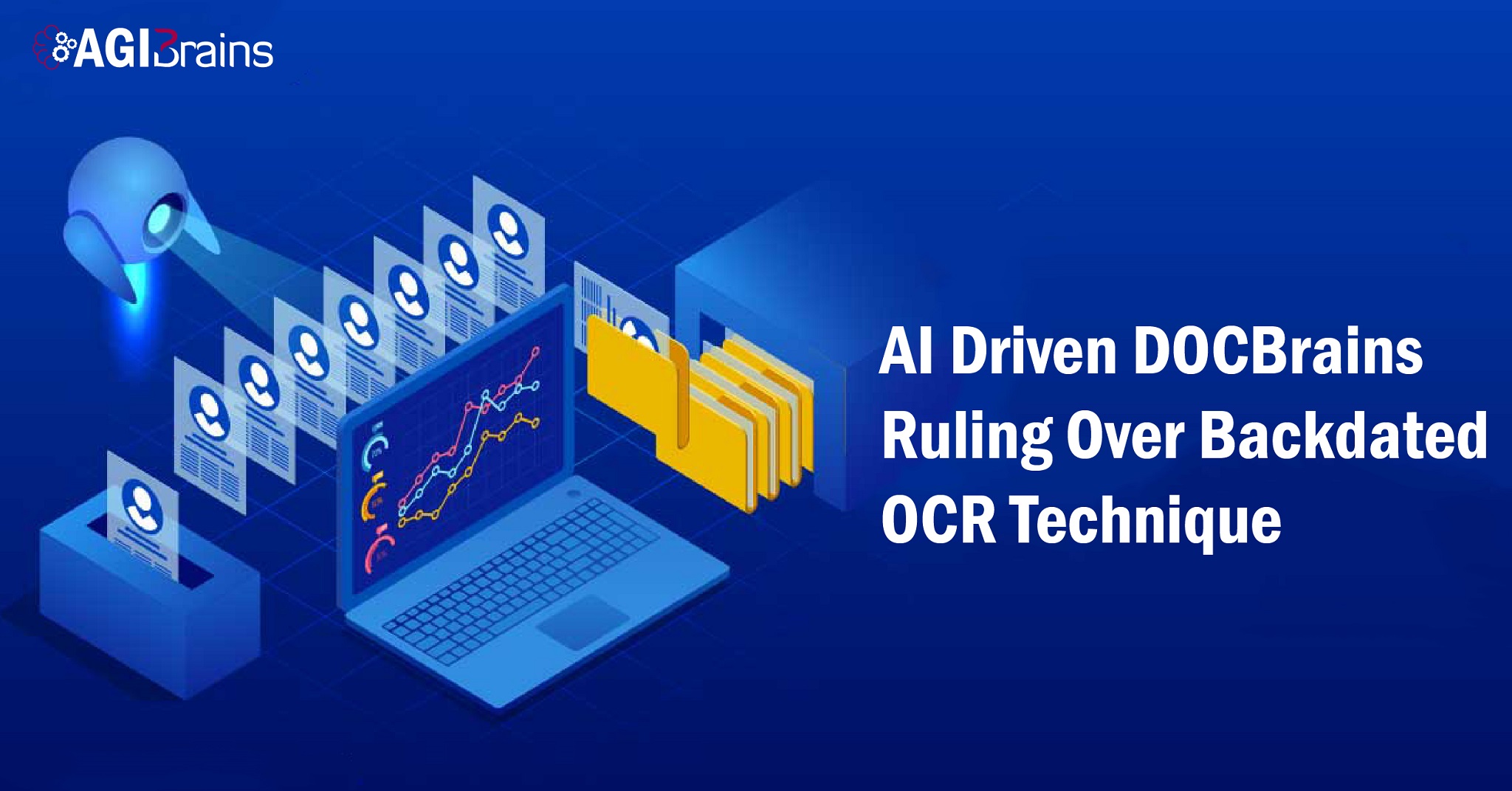AI Driven DOCBrains Ruling Over Backdated OCR Technique

The Majority of organizations assume that the foundation of document automation and data
extraction relies upon optical character recognition (OCR). The conclusive subject is based
on the fact that almost all the documents are text-based and therefore, the initial methods
available for automation functionality such as document classification, Shortlisting, and
data entry for further processing require OCR.
But the perspective that document automation and data extraction is limited to text-based
information is very limited and excludes a lot of options to improve functionality while
diminishing costs. Take, for instance, the process of auditing documentation. While a lot of
attention for automation lies within origination, several functions occur during or right
before and after a process is funded and closed. Rearranging involves multiple activities
the least of which is going through one-by-one verification of all expected supporting
documents being present. And, as with document automation within origination, there is a
need to thoroughly look into each document to verify text-based data such as values, rates,
addresses, and at times personal information.
There is still complicated information that does not permit the use of OCR. Some solutions
may get oppressed by trying to determine if a part of a page has something in it by
validating for a certain density of quality, but this approach leads to a lot of error
forcing the employees to check the software’s results. But what if an organization, like a
third-party processing company, could receive a file, and quickly and automatically list out
all documents present and then produce a report that summarizes all key data required
information for each document, Even non-text data?
This is where the application of computers meets deep learning neural networks to teach
software to “observe” like a human, except at a median of the time and with much greater
perfection. For instance, to identify symbols, pictorial representation and diagrams the
software is made to understand what the provided information looks like compared to other
types of data. Software such as DOCBrains which is AI driven can reliably locate symbols,
pictorial representation, diagrams and other required information anywhere in a document.
When it comes to complex information and structures, we enter an even more complex yet
solvable problem: how to evaluate and note the presence of a stamp anywhere on a page and in
any orientation. And there could be multiple such tasks of reading handwritten information
and identifying the presence of the required set of information. While these functions can
be easily solved by humans, machines can often be confused by even the slightest variation
of data set. But with the right set of machine learning techniques and AI algorithms, a high
level of automation can be achieved.
Updating to an even more advanced level, Information within a document can be compared to
one another to verify that the same required set of information was involved for all rest of
the other documentation. Once synced with typical text-based data extraction, organizations
involved with lending from the user to the servicer can witness a high level of automation
for a broader range of functionality, even while raising the standard levels of accuracy.
More with less. And you can do it with all the information on a document.